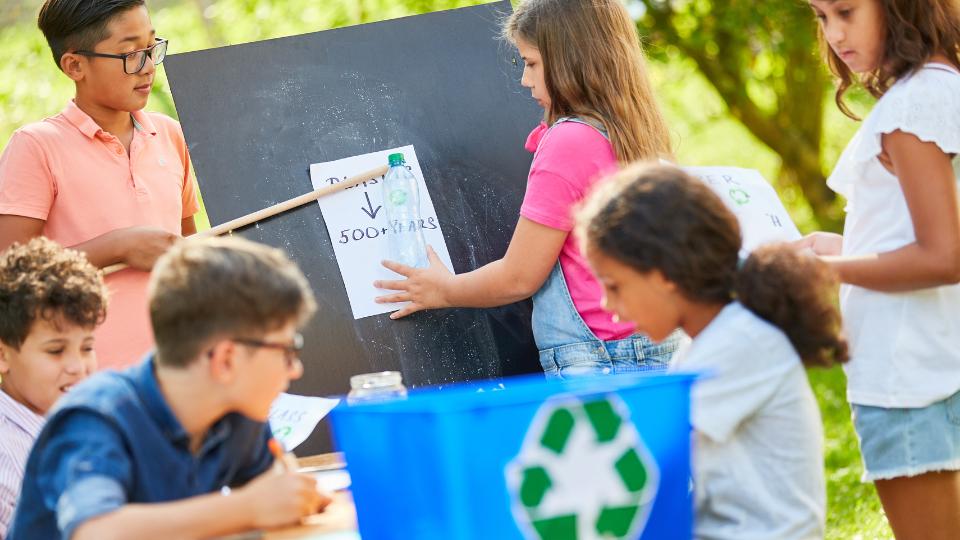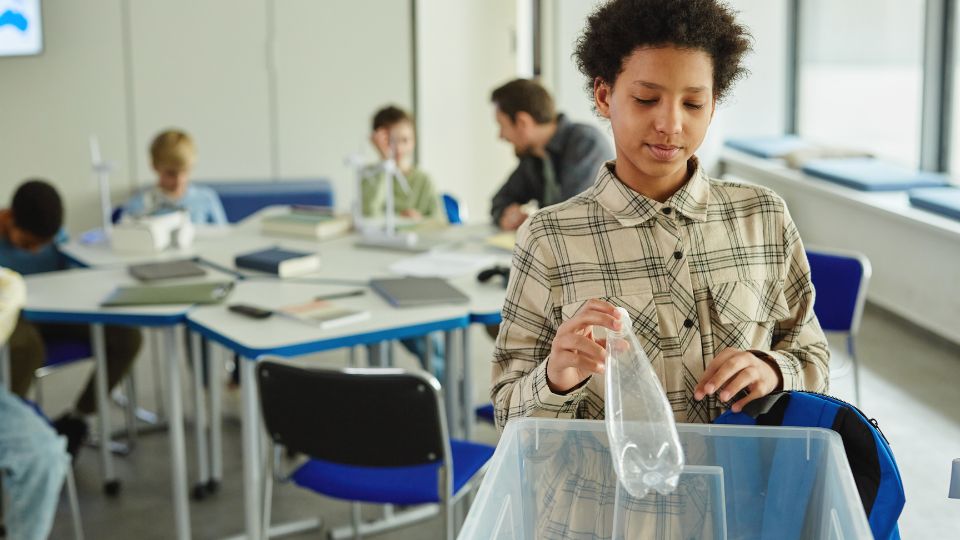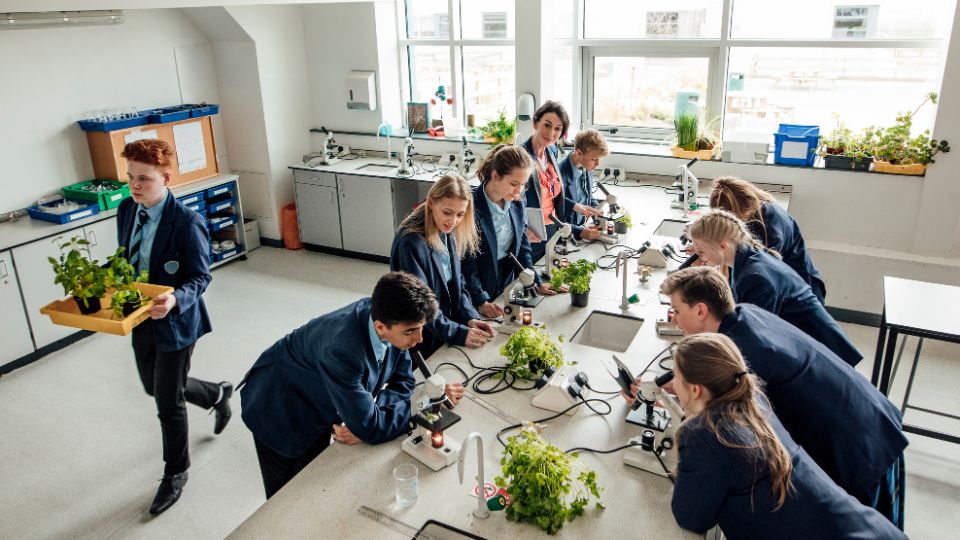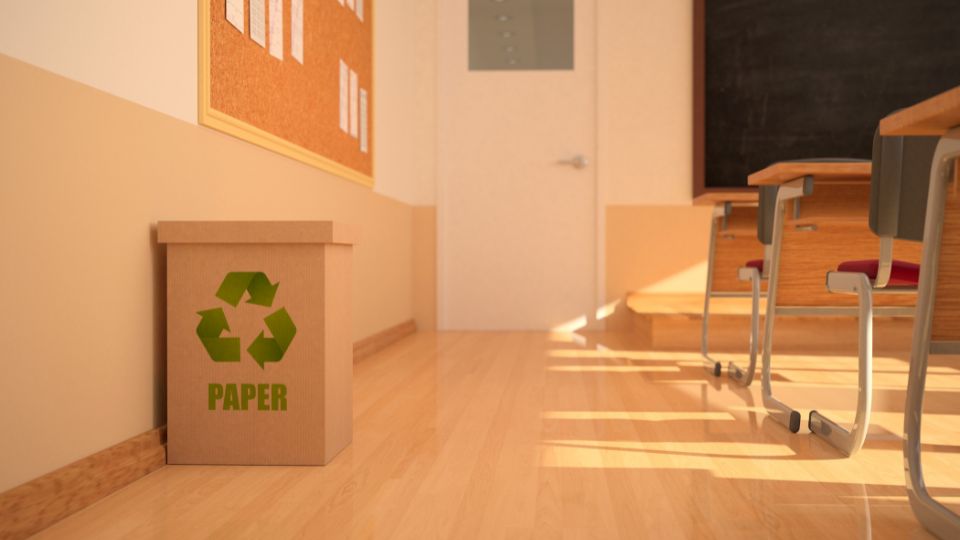
In recent years, environmental sustainability has become a pressing concern worldwide, and schools in the UK are no exception.
With hundreds of thousands of students and staff members, schools generate a significant amount of waste daily.
By implementing effective waste reduction strategies, schools can play a crucial role in promoting sustainability and educating future generations about the importance of looking after the environment.
Here’s how schools in the UK can reduce waste and some eye-opening statistics to highlight the urgency of this issue.
Table of Contents
- Types of Waste in Schools
- The Impact of Waste in Schools
- Strategies for Reducing Waste
- Facts and Statistics about School Waste
- Conclusion

Types of Waste in Schools
Schools produce various types of waste, primarily categorised into:
- Food Waste: Leftover food from school cafeterias, vending machines, and lunchboxes.
- Paper Waste: Waste paper from homework, information sheets, posters, notes, artwork, notices, and administrative purposes.
- Plastic Waste: Single-use plastics like bottles, cutlery, and packaging.
- Dry Mixed Recycling: Mixed recyclable items like cardboard, paper, and glass bottles.
- Electronic Waste: Outdated computers, tablets, and other electronic devices.
Understanding these sources helps in tailoring effective waste-reduction strategies.

The Impact of Waste in Schools
- Volume of Waste: According to WRAP (Waste and Resources Action Programme), UK schools produce approximately 80,000 tonnes of waste each year.
This amounts to about 45 kg of waste per student annually.
- Types of Waste: The majority of this waste consists of paper (25%), followed by food waste (21%), and then general waste, which includes plastics and other non-recyclable materials.
- Cost of Waste: Managing waste is not just an environmental issue but also a financial one.
UK schools spend an estimated £21.5 million annually on waste disposal.

Strategies for Reducing Waste
There are many ways you can reduce the amount of waste created by your school.
Keep reading to see how!
Implement School Recycling Programmes
- Recycling Bins: Place clearly labelled recycling bins in classrooms, cafeterias, and common areas.
Ensure they are regularly emptied and that students and staff are educated on what can be recycled.
- Paper Recycling: Encourage double-sided printing and the use of scrap paper for notes.
Set up paper recycling bins in every classroom.
Reduce Food Waste
- Meal Planning: Coordinate with catering services to plan meals more effectively, reducing the amount of leftover food.
Implement a system where students can pre-order meals to minimise over-preparation.
Consider allowing lower-income families to take free meals home from leftover food.
- Composting: Set up compost bins for organic waste, such as fruit peels and leftover vegetables.
Use the compost for school gardens or donate it to local community gardens.
Minimise Single-Use Plastics
- Reusable Containers: Encourage students and staff to bring reusable water bottles, lunch boxes, and cutlery.
Consider providing these items branded with the school logo as part of a welcome pack.
- Ban Single-Use Plastics: Phase out single-use plastic items like straws, cups, and cutlery in school canteens.
Replace them with biodegradable or reusable alternatives.
Education and Awareness
- Environmental Clubs: Establish eco-clubs or green teams that lead waste reduction initiatives and raise awareness about environmental issues.
- Curriculum Integration: Integrate lessons on sustainability, recycling, and waste reduction into the curriculum.
Projects can include waste audits, where students assess the school’s waste and propose solutions.
Partnerships and Programmes
- WRAP and Eco-Schools: Partner with organisations like WRAP and the Eco-Schools programme, which provide resources and support for schools aiming to reduce their environmental impact.
- Local Councils: Work with local councils to improve waste collection and recycling services. Some councils offer educational programs and materials to help schools manage waste more effectively.

Facts and Statistics about School Waste
- Food Waste: It is estimated that UK schools waste around 123,000 tonnes of food annually, which equates to about 22 million meals.
Reducing food waste can significantly lower this figure and save money.
- Paper Use: Schools are one of the largest consumers of paper products.
By encouraging digital learning and reducing paper use, schools can cut down significantly on waste.
- Student Involvement: Studies have shown that involving students in waste reduction programmes not only helps reduce waste but also creates a culture of environmental responsibility and leadership.

Conclusion
Reducing waste in schools is not only beneficial for the environment but also fosters a culture of sustainability among the younger generation.
By implementing waste audits, composting organic waste, reducing paper consumption, and embracing non-plastic alternatives, schools can significantly lower their waste output.
Educational talks and donation programs further reinforce these efforts, ensuring that students, staff, and the wider community are engaged in sustainable practices.
For UK business owners, supporting these initiatives provides an opportunity to contribute to environmental stewardship and community well-being.
By investing in waste reduction programs and offering expertise, businesses can play a pivotal role in creating a sustainable future. Together, schools and businesses can drive significant progress towards a greener, more sustainable world.







